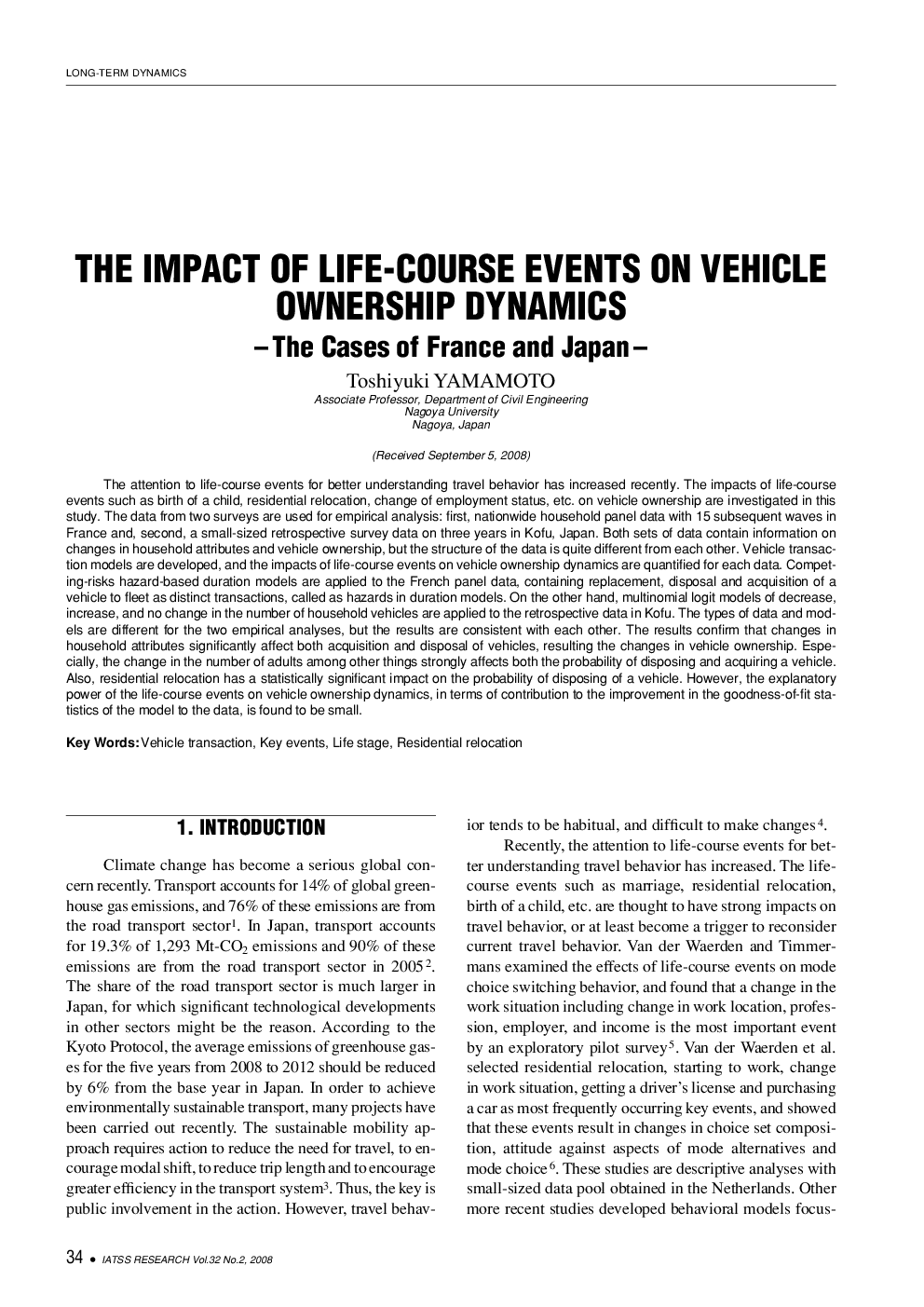| Article ID | Journal | Published Year | Pages | File Type |
|---|---|---|---|---|
| 1104802 | IATSS Research | 2008 | 10 Pages |
The attention to life-course events for better understanding travel behavior has increased recently. The impacts of life-course events such as birth of a child, residential relocation, change of employment status, etc. on vehicle ownership are investigated in this study. The data from two surveys are used for empirical analysis: first, nationwide household panel data with 15 subsequent waves in France and, second, a small-sized retrospective survey data on three years in Kofu, Japan. Both sets of data contain information on changes in household attributes and vehicle ownership, but the structure of the data is quite different from each other. Vehicle transaction models are developed, and the impacts of life-course events on vehicle ownership dynamics are quantified for each data. Competing-risks hazard-based duration models are applied to the French panel data, containing replacement, disposal and acquisition of a vehicle to fleet as distinct transactions, called as hazards in duration models. On the other hand, multinomial logit models of decrease, increase, and no change in the number of household vehicles are applied to the retrospective data in Kofu. The types of data and models are different for the two empirical analyses, but the results are consistent with each other. The results confirm that changes in household attributes significantly affect both acquisition and disposal of vehicles, resulting the changes in vehicle ownership. Especially, the change in the number of adults among other things strongly affects both the probability of disposing and acquiring a vehicle. Also, residential relocation has a statistically significant impact on the probability of disposing of a vehicle. However, the explanatory power of the life-course events on vehicle ownership dynamics, in terms of contribution to the improvement in the goodness-of-fit statistics of the model to the data, is found to be small.
